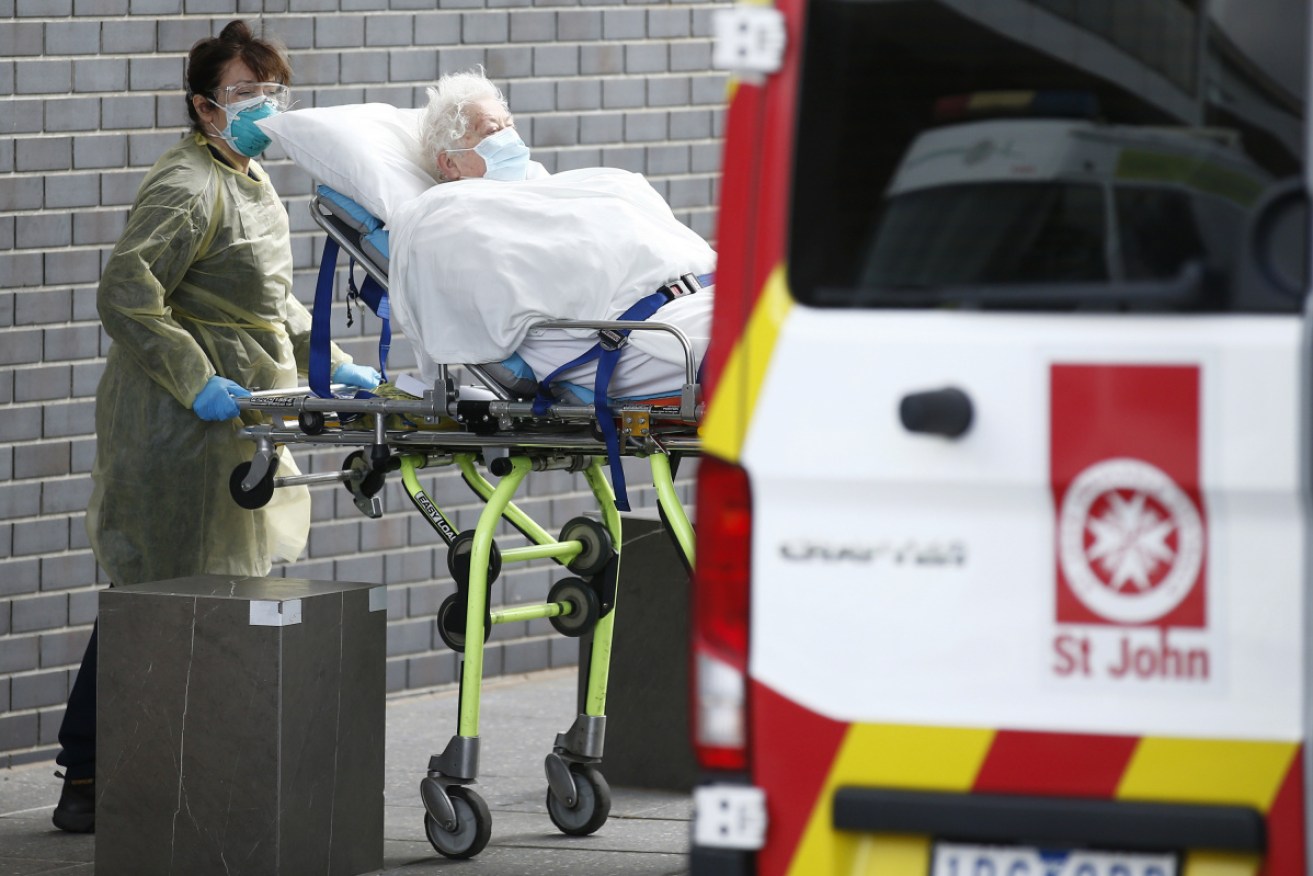Proposal to raise Medicare levy could help fix aged-care sector


The aged care sector has been the hardest hit by the coronavirus pandemic. Photo: AAP Photo: AAP
Australia can fix its broken aged-care system to avoid repeating the horrors of COVID-19, but we must be willing to raise the Medicare levy, reports an economic consultancy firm.
Even before the deadly coronavirus pandemic hit, the royal commission into aged care had exposed major flaws in the sector that were leaving elderly Australians vulnerable to neglect.
Problems included decades of underfunding and a lack of transparency in the quality of care.
The Medicare levy hike would seek to solve some of these issues by boosting staff numbers and the wages of aged-care workers, under a proposal by the Health Services Union NSW/ACT/Qld.
To afford the sector’s much-needed safety and quality upgrades, funding would need to be increased by between $2 billion to $20 billion, the report states.
This means raising the Medicare levy by between 0.1 and 0.65 per cent.
The last time the federal government raised the levy was in 2019, upping it by 0.5 per cent from 2 per cent to 2.5 per cent of taxable income to help fund the National Disability Insurance Scheme (NDIS).
“Increasing taxation is always challenging,” report authors Equity Economics wrote.
“However, there is evidence that the public is prepared to support higher taxation where the revenue is being applied to clear areas of need, with costs and benefits broadly shared across the community.”
So what are the changes we’d be paying for under the plan?
Increase in care hours
One of the biggest issues facing Australia’s aged-care sector is that many nursing homes are chronically understaffed, meaning workers don’t have enough time to give each resident the care they deserve.
This has contributed to an “unbreakable cycle” of high turnover, low staff satisfaction, increased costs of recruitment and training, as well as poor quality of care, the report states.
Last year, a survey of aged-care workers found that 87 per cent of them had to rush residents in their care because they had too many tasks to complete.
Of those surveyed, 94 per cent said they did not have enough time to even talk to residents.
To offer residents more one-on-one time with carers, we will need to pay for more staff.
Pay rises for care workers
In Australia, full-time personal care workers on award rates of pay earn between $20.73 per hour and $25.18 per hour.
Their salaries are only just above the minimum hourly wage set by the Fair Work Commission of $19.49 per hour.
Paying aged-care workers such low wages undermines quality because it makes attracting and retaining high quality and well-trained staff difficult, the report’s authors claim.
“Increasing rates of pay for personal care workers would further help address the quality of aged-care provision,” they wrote.
The rapid spread of the coronavirus through dozens of aged-care homes also revealed that many aged-care workers were being employed on a casual basis.
To make ends meet, many workers were found to be taking shifts across multiple nursing homes – unknowingly carrying the virus from one home to the next.

Lessons from Sydney outbreaks were not taken through to St Basil’s, it has been claimed. Photo: Getty
The extra funding raised by the Medicare levy would ease some of this financial pressure and “ensure the industry can continue to attract and retain high-quality staff”, the report said.
The Health Services Union is pursuing an increase in wages of 25 per cent in real terms over four years for personal care workers.
“These measures alone may not be adequate, with a focus on staff training and the physical infrastructure of residential care homes also important,” the report added.
“However, they represent the biggest cost drivers of improving quality of care.”








